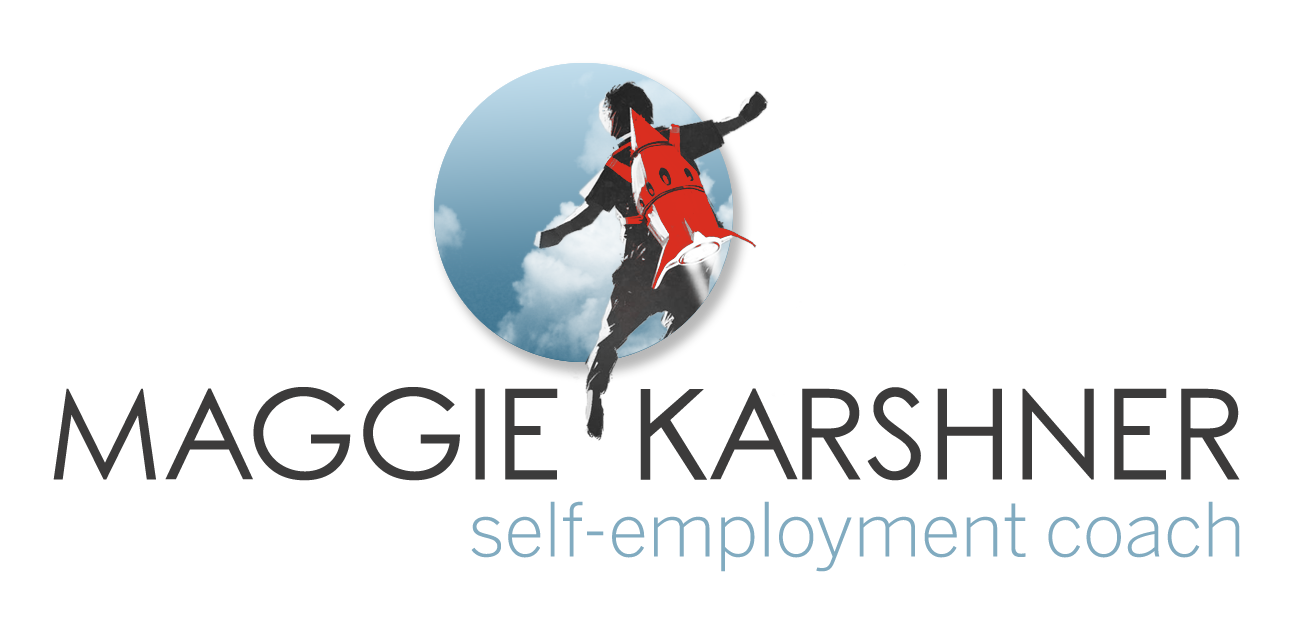How to Cure the "Never Enough" Feeling
/In the throws of this December shopping season, I'm going to go against the grain and talk about "enough." Whether it's stuff, money, or time, it's not uncommon to feel like there's never enough of it; that we're lacking. Maybe we also don't feel like we're "good enough" by whatever arbitrary standard that voice in our head seems to set for us.
What is “enough”?
Sometimes we get trapped in thinking that all our problems would be solved if we had more: more money... or better stuff... or more time...(or a teleporter!) These feelings all speak to a sense that we don't have enough. While I'm a fan of striving as much as the next person, there's power in knowing what is enough. Knowing when you can rest, and ensuring we don't get bogged down by too much work or too much stuff.
Our capitalistic society seems to want us to believe that there's no such thing as "enough" money. Once we become millionaires, then we could become billionaires, right?! As recent current events have helped bring to light, the difference between a million and a billion is rather immense, so lets find an end goal of "enough" that's sufficient, comfortable, and most importantly: within reach! And let's make a plan to get there that is not riddled with self-deprecating austerity. Austerity is not sustainable and it doesn't make for an enjoyable life. However, getting in touch with "enough" can bring us more joy, and as an added benefit: it helps to dis-empower capitalism.
Start with a Thought Experiment
Think about how much you need to live on each month. I mean all your expenses, any monthly credit cards or loan payments, and anything you’re currently putting into savings or retirement. Total that up. I’ll wait. …got a number?… ok, add to that a little so you get to a number that you could live on really comfortably. Ok, got your final number? Great, double it. Now what would happen if you started earning that amount? Where would your budget expand that would bring you joy and extend your impact? While it's fun to dream about all the opulent stuff you could get and things you could do with more money, a lot of those dreams don't necessarily result in more joy or a greater impact.
The most common things people seem to think they want to do with their money have some unexpected costs. Buying things, vacations, maniacally saving... all of these have a downside. Allow me to elaborate:
Buying Stuff
After multiple rounds of downsizing for multiple aging family members, I'm painfully aware of the stress that comes with Stuff. When it comes to acquiring stuff, the downside is tied to where to store this stuff: you can shove more of it in the same space, get more space, or get rid of some of the old stuff. More stuff in the same space becomes non-functional. More space can get expensive, and ultimately makes the third option more difficult: getting rid of the old stuff takes time and energy. Is the stuff you want actually bringing about an increase in joy when you include dealing with the old stuff in your evaluation? This is my preventative version of the KonMari strategy of examining an item and identifying if it still brings you joy or if it's time to thank it and send it on it's way. Before even letting something into my home, I ask if it's going to bring me joy to make space for it and also to send it on it's way in the future. I carefully consider any purchase because I know I'll have to get rid of it at some point. And I routinely cull stuff out of my life.
"Buying stuff" can also extend to buying a house or a boat, or a car(s.) All these things require care, maintenance, repairs, insurance. All of these take time, and the bigger/fancier the thing is, the more these cost. If cleaning and caring for a large house doesn't bring you joy and doesn't further your life purpose, maybe that's not the solution to your stuff problem? If you've always wanted to own a boat, but the care and keeping of a boat does not sound like a fun use of your time and money, maybe boat owning isn't right for you. (Maybe try renting a boat?!)
Vacation
Maybe it’s just the Seattle winter getting to me, but there sure seems to be a lot of interest in relocating to a warm sunny beach as a marker of having “made it.” Even if your bucket list is more diverse than that, I want to point out a reality: you can’t vacation 100% of the time. There are basic human needs to learn, grow and contribute to society. These things don’t tend to happen on vacation, and if they do it might stop feeling like a vacation.
If 100% vacation isn’t possible, and 100% work is miserable, then what’s the happy medium? It’s probably unique for each individual. I know for me, if I’m out of town every weekend then basics like laundry and dishes never seem to get done! Even a short vacation once a month might inhibit the balance necessary between work, hobbies and self-care. So how frequent a vacation is actually ideal? Maybe you can savor that bucket list by crossing something off every couple years rather than a binge when you magically win the lotto?Also consider how opulent a vacation needs to be to get the relaxation you’re seeking. Do you need a flight and hotel to get access to joy and relaxation, or does escaping to a cabin in the nearby countryside do the trick?
Saving for a Rainy Day
As self-employed business owners we’ve probably all been through (or are in) a place of financial uncertainty. After an experience like that we can experience an urge to save! save! save! and hoard our money. While savings is definitely a good plan, the old adage “you have to spend money to make money” also has some truth to it. And more importantly, does saving money bring you joy and expand your impact? If you’re putting all your surplus into a retirement account, that might fall into the trap of suffering now for a future that may never come. Knowing how much to save for retirement (an actual number and not “EVERYTHING”) is important, but know how much to save each month so that you have enough, and do something more fulfilling now with money beyond that.
But Right Now I Don't Have Enough
It's true that there is a minimal amount a person needs to live; tightening your belt only goes so far. Even in cases where you categorically don't have enough, there is benefit in looking for abundance. If right now you're at your "ground zero" then what you do now will become the foundation for how things will go later when you have more abundance. Without as many resources we have the room to see what is truly important and what is superfluous. The important things help us live our purpose with greater impact and bring us joy. If it doesn't do that, then it probably isn't important.
Self-limiting Beliefs
Keep in mind that if you don't have a surplus right now, that should be a transitory place. If you've structured your business reasonably, priced your services appropriately, and considered your capacity, then it's only a matter of gaining enough clients (or bailing ship and getting a boring day-job.) If this is not what your future looks like, I challenge you to make a shift in your business. Living the life of a pauper does not extend your impact, and it probably won't bring you joy. If you aim your financial goal a bit higher, that gives you more margin for error and that's pretty vital when starting and operating a business.
There's Never Enough Time
While money and stuff can come and go, the truth is time is the most finite resource. The amount of money you earn may change, but how you spend your time is more likely to bring you joy than money ever will. If you feel you don't have "enough" time, the question isn't how to get more time, it's how to apply your time more constructively. How do you leverage money to make more "time" and what spending actually costs time?
Know What is Enough
When it comes to time (and money and stuff), you set the boundaries, so it's helpful to get clear on when you have "enough" and what you intend to do with a surplus. When you're in a place without a surplus, dream big about what you might do. Then when that surplus arrives, you'll have the clarity to get choosy about what you'll be doing with that surplus, regardless of if it's stuff, money or time.




